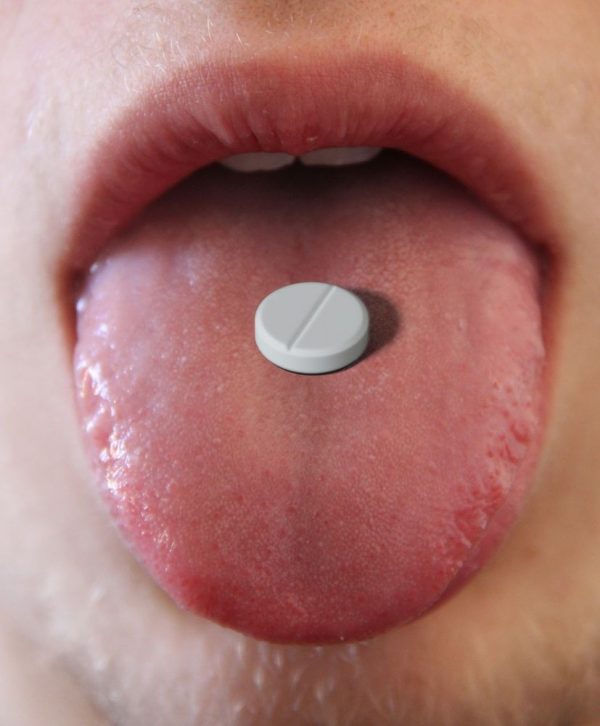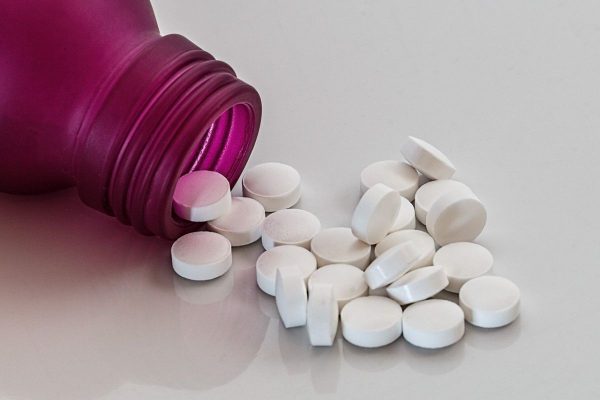One of the first things we all learn after being diagnosed with a fatty liver disease is that taking any sort of pill is a big NO, especially over-the-counter painkillers.
At the same time, the quality of life would be extremely low if we are unable to treat our pain – no matter if we talk about a massive headache or chronic pain.
Therefore, considering risk vs reward, we should definitely take some sort of a pain medication after discussing with our doctor. But generally speaking, what painkiller is the safest if you have a fatty liver disease?
The safest, most liver-friendly painkiller is acetaminophen (aka paracetamol / Tylenol) if taken in reduced doses, under 2 grams per day.
This means that – especially if you suffer from chronic liver problems (like MASLD aka fatty liver disease) – you should only take it as instructed by your doctor.
Yes, most doctors recommend us to avoid using over-the-counter painkillers like Paracetamol aka acetaminophen (Tylenol) or ibuprofen, but this doesn’t mean that we shouldn’t take any if the situation requires it.
We’re going to dig a bit deeper and learn more about this very sensitive topic, maybe just as debated as the relation between stress and fatty liver disease.
Best Painkiller for Fatty Liver Disease
It’s important to know that all over-the-counter painkillers can cause liver damage if not taken correctly. This is why doctors recommend us to stay away from them.

But, if really needed, taking the lowest dose available for treating the pain is generally safe, no matter if you take paracetamol or even ibuprofen.
Out of the two, paracetamol (acetaminophen) is considered the safest and best painkiller for fatty liver disease.
You can get more in depth with this by reading this study from April 2020, or this one from 2011.
If you don’t want to get that much into details, the conclusion is as follows:
For those suffering from chronic liver problems, including MASLD, pain meds like Paracetamol (acetaminophen) are considered the safest to take, even though they can still cause liver damage and liver failure.
However, this usually happens when taking an overdose or large doses for long periods of time.
NSAIDs like Ibuprofen are not recommended because they seem to cause a wider range of problems to those suffering from chronic liver issues, but it is also considered a “low risk” medicine, which means that taking the smallest dose for the shortest amount of time possible might not be that harmful.
To quote the conclusion of a study published in March 2020: “Due to the apparent low absolute risk of ibuprofen-induced liver complications, ibuprofen can be regarded as an efficacious and safe NSAID” (source here)
In conclusion, if taken correctly, both ibuprofen and acetaminophen are good options for relieving pain, but generally the latter is considered the safest as long as you pay attention to the dosage and take the smallest available dose to help you with your problem.
How to take painkillers with fatty liver?

You should always take any type of medicine exactly as instructed by your doctor, even if we’re talking about over the counter type of pills.
It is extremely important to get the dosage right when taking acetaminophen (hence the need to talk to your doctor) or any other painkiller.
An overdose of acetaminophen or paracetamol can indeed cause liver failure – even to healthy individuals. Those suffering from chronic liver disease might overdose on lower quantities.
But using it as directed is “extremely safe even for people with liver disease,” according to the American College of Gastroenterology.
They recommend (even for healthy people) a maximum dose of 1,000mg of acetaminophen per dose, up to a maximum of 4,000mg in a single day, taken 8 hours apart.
But if taken for a few days in a row, the maximum dosage should be reduced to 3,000mg per day for healthy individuals.
However, they recommend patients with chronic liver disease to limit the amount to 2,000mg per day, also divided in four doses taken every 8 hours.
This isn’t that bad, though: a Tylenol pill usually has 500mg acetaminophen and in most cases one pill every 8 hours is enough. So it’s really not very restrictive.
Sure, it’s not as effective as Ibuprofen (in my case at least), but it does help and it’s definitely better than nothing. And when dealing with minor problems like headaches or low level pain, it’s works just fine.
IMPORTANT: Make sure to read the labels of any type of medication you take, even if it’s over the counter.
There are many types of pills or syrups that have paracetamol (aka acetaminophen) in various amounts. Read the list of ingredients carefully to avoid overdosing!
However, in this situation, the best approach is to talk to your physician and decide the correct dose to take, what brand to get AND don’t take anything else that they don’t recommend to avoid potential overdoses or unwanted interactions.
Most common brands of ibuprofen and acetaminophen painkillers available to buy

It’s difficult to create a complete list of these types of medications, because their names vary from country to country and lots have either one, or the other as an ingredient.
But below, I’ll try to cover the most common names you’ll find each of them in drug stores worldwide.
We’ll start with paracetamol, since it seems to be the best option for fatty liver patients.
Acetaminophen / paracetamol brand names
- Tylenol
- Paracetamol
- FeverAll
- Acephen
- Panadol
- Calpol
IMPORTANT: The brands above are the most common ones, but they vary greatly from country to country.
Always check the list of ingredients on the pills you buy – especially for those aimed at reducing flu symptoms, fever or pain.
Ibuprofen brand names
- Advil
- Motrin
- Midol
- ElixSure
- Nuprin
- Proprinal
- Nurofen
IMPORTANT: Just like with the brands above, make sure to always read the list of ingredients before taking any type of pill.
There are many more brands that use ibuprofen – they vary greatly from country to country.
My personal experience with taking painkillers while having a fatty liver

Since over the counter painkillers are indeed not recommended if you have chronic liver problems, it’s best to only take them if you really need them.
Over the several years since being diagnosed, I did take over the counter painkillers for various reasons – from fixing bad headaches to reducing fever and make cold/flus more bearable.
I can’t really remember if I took any painkillers before getting the confirmation that I had reversed my fatty liver, but since it took me 1.5 years to get the confirmation, I can only imagine that I took them at least on several occasions.
The funny thing is that back when I got diagnosed, the consensus was the opposite – at least based on the information I received from my doctors back then.
Back then, I was recommended to take ibuprofen instead of paracetamol if needed, since the latter was actually considered to be the worst choice of the two.
Things have changed and recent studies proved them wrong (which is another important reason for you to keep learning and read updates to make sure you always take the best decisions).
But, truth be told, I did take them both. I indeed focused more on Advil and Nurofen (both Ibuprofen brands in my country), but also acetaminophen. I usually took the former to deal with headaches, and the latter to reduce fever.
I always made sure to take the minimum dosage available – and fortunately it always worked.
With ibuprofen, I only took it now and then, and never more than one pill (200mg) per day unless I was down with a cold/flu and my doctor recommended otherwise.
The paracetamol was also taken when I was down with a bad cold, so I took it for 2-3 days in a row, but usually just 2-3 times a day (so around 1,000 – 1,500mg per day).
In other words, in both cases, I was always taking small amounts, as recommended by doctors.
I had no problems reversing my fatty liver and keeping my liver healthy ever since. (With the appropriate diet, eating healthy food and such).
So based on my personal experience, taking a pill when needed will not kill you. Don’t overdo it, though and ALWAYS discuss it with your physician, to make sure that you get the correct dose and not more than needed.
And with those headaches that are not really that bad… try drinking a coffee or a tea, rest a bit and massage your temples. Or take a nap. It’s best not to take a pill if it’s not really needed.
I hope that this article helps and makes it easier now to understand which painkillers are considered the best med you can take when the situation requires it, if you have a fatty liver disease.

I was diagnosed with a fatty liver back in 2014 and managed to reverse it by mid-2015. Since then, I’ve been studying it, continuously updating my knowledge with the latest scientific findings and practical approaches to give others the help they need to reverse their condition.
My approach to managing fatty liver is holistic, balancing scientifically-backed information with real-life, practical advice based on personal, direct experience.
I am also the admin of the Fatty Liver Support Group on Facebook and the Fatty Liver Subreddit.

